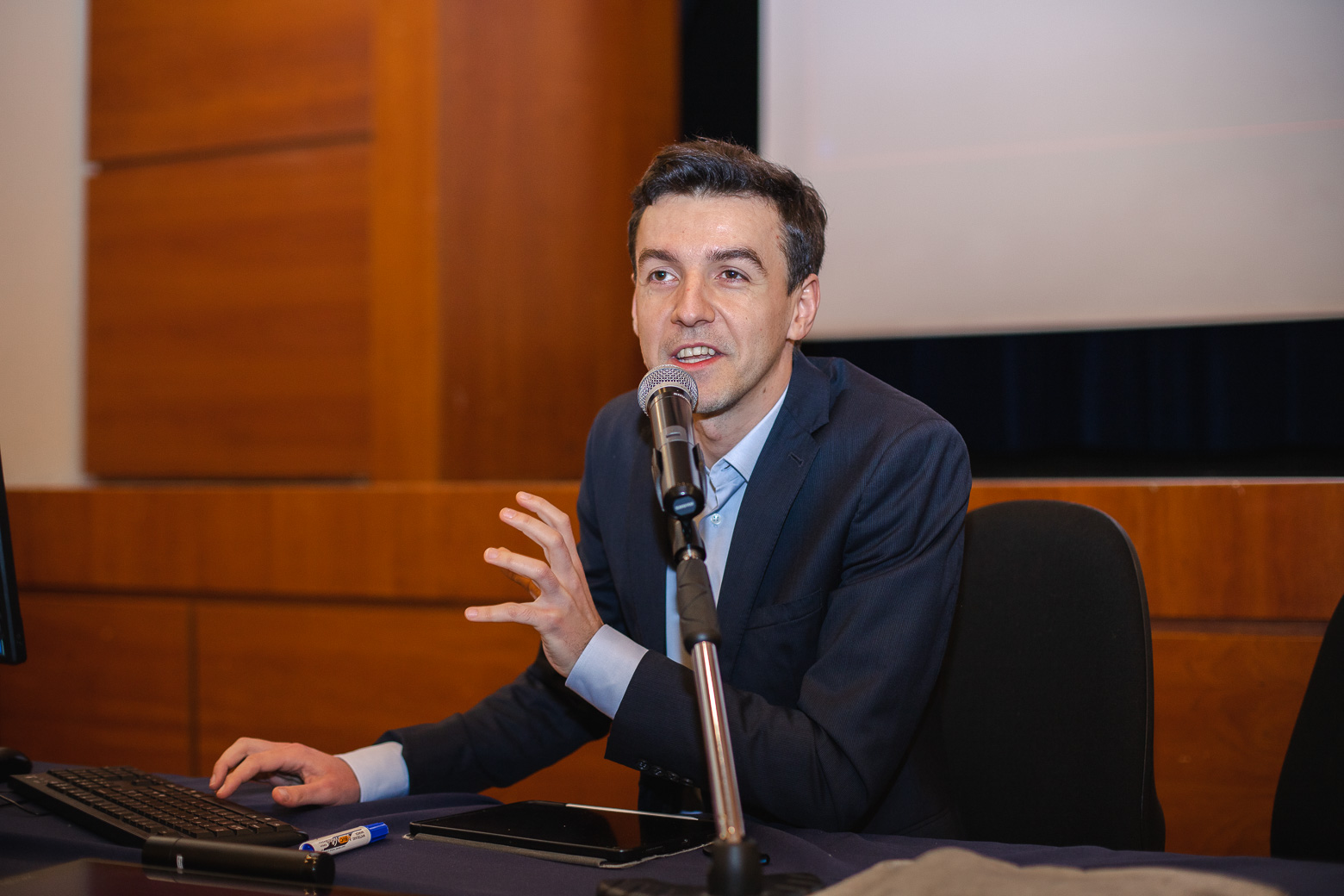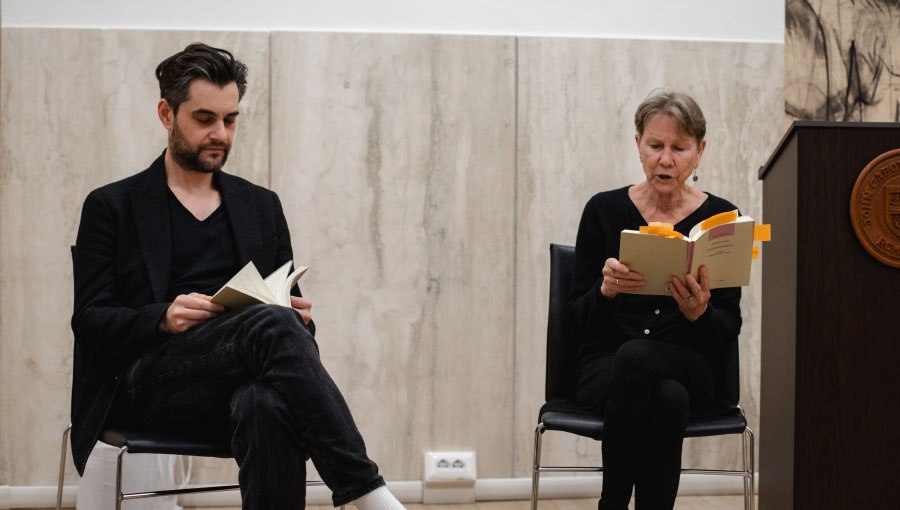Professor Bogdan Popescu on Digital Humanities, Class Language, and Brexit
The Department of English Language and Literature, and the Department of Mathematics, Natural, and Applied Sciences welcomed JCU Political Science Professor Bogdan Popescu for a talk called “God save the Queen’s English: economic origins of class language and Brexit,” on March 14, 2023. The talk, which was the second in the “DH@JCU2023 – Digital Humanities in Practice” lecture series, was moderated by JCU English Professor Alessandra Grego.

Bogdan Popescu
Professor Popescu began by explaining that his ongoing research is multidisciplinary, as it combines insights from political science, sociology, history, and economics, and that digital humanities is an integral part of the project. “I was interested in the relationship between language development and historical industrialization, how the language in England got to be associated with class, and how language could be important for predicting voting behavior,” he explained.
The main research questions that Professor Popescu tackled were three. The first question looked at where these differences in speech came from, and if there’s still a connection between language and economic status. The second question inquired as to whether there is a correlation between distance from the Queen’s English and economic status. The last question explored the relationship between voting behavior and language.
In the first part of his research, Professor Popescu looked at the phonology, vocabulary, and grammar of English speakers from around England. He showed several videos of people from different parts of England to highlight the differences in accent. He then pointed out the difference between the southeast England accent, which he called the state’s language, or the Queen’s English, and the accents that are more common in other areas of England.
Professor Popescu argued that some of these linguistic particularities can be attributed to social demographic factors dating back to the industrial revolution. “I argue that the industrial revolution caused huge migration spikes to northern England, and that some places got overwhelmed with migrants, which resulted in a change in the local language,” he said.
Then, Professor Popescu briefly talked about England’s historical background. In the 18th and 19th century there were large population movements in the country. “When there’s a limited number of people traveling to a new place, they end up adopting the founder’s principle, which means that they adopt the language of the locals,” he explained. On the other hand, the process called swamping refers to when the number of incomers is larger than the number of locals. “This is when the original dialect becomes overwhelmed and that’s where you end up seeing rapid change,” he added. In 1750, the population started growing rapidly in the areas that are far from the Queen’s English, as opposed to the southern areas that are closer to the Queen’s English.
Regarding language’s class identity, Professor Popescu said that the industrial revolution represented an ideal context for migrants and locals to interact with one another. “People in factories were working in similar conditions, so they formed a class identity where language played an important role. The way one speaks ends up becoming part of their identity as a working-class member,” he explained.
Professor Popescu also argued that language is an important predictor of income. “The speakers of low status are perceived as incompetent and uneducated. By contrast, people who utilize the Queen’s English are much more likely to be associated with elitism, prestige, and competence, and this is reflected on their income,” he explained. “People who are far away from the Queen’s English, are much less likely to trust the government and to think that immigration is positive for the country, so people from working class backgrounds are much more likely to have voted for Brexit,” he added.
He quoted an article by Lisa McKenzie, who said that the voices of the working class have been ignored for 40 years and that it is time to recognize the systematic way in which the working class has been excluded from British society. He showed how areas that are far from the Queen’s English had a higher percentage of people who voted for Brexit, as opposed to places that are closer to the Queen’s English, which had a lower percentage of people who voted for Brexit. “So, the distance from the Queen’s English is still a significant factor affecting Brexit, and the percentage of people who voted to leave,” he said.
Bogdan Popescu is Assistant Professor in Political Science at JCU and Visiting Researcher at the University of Oxford. He previously taught at the University of Oxford and was postdoctoral researcher at Bocconi and Princeton. He holds a Ph.D. in Political Science from the University of Chicago. His research interests focus on comparative politics and historical political economy using novel data from historical sources.





